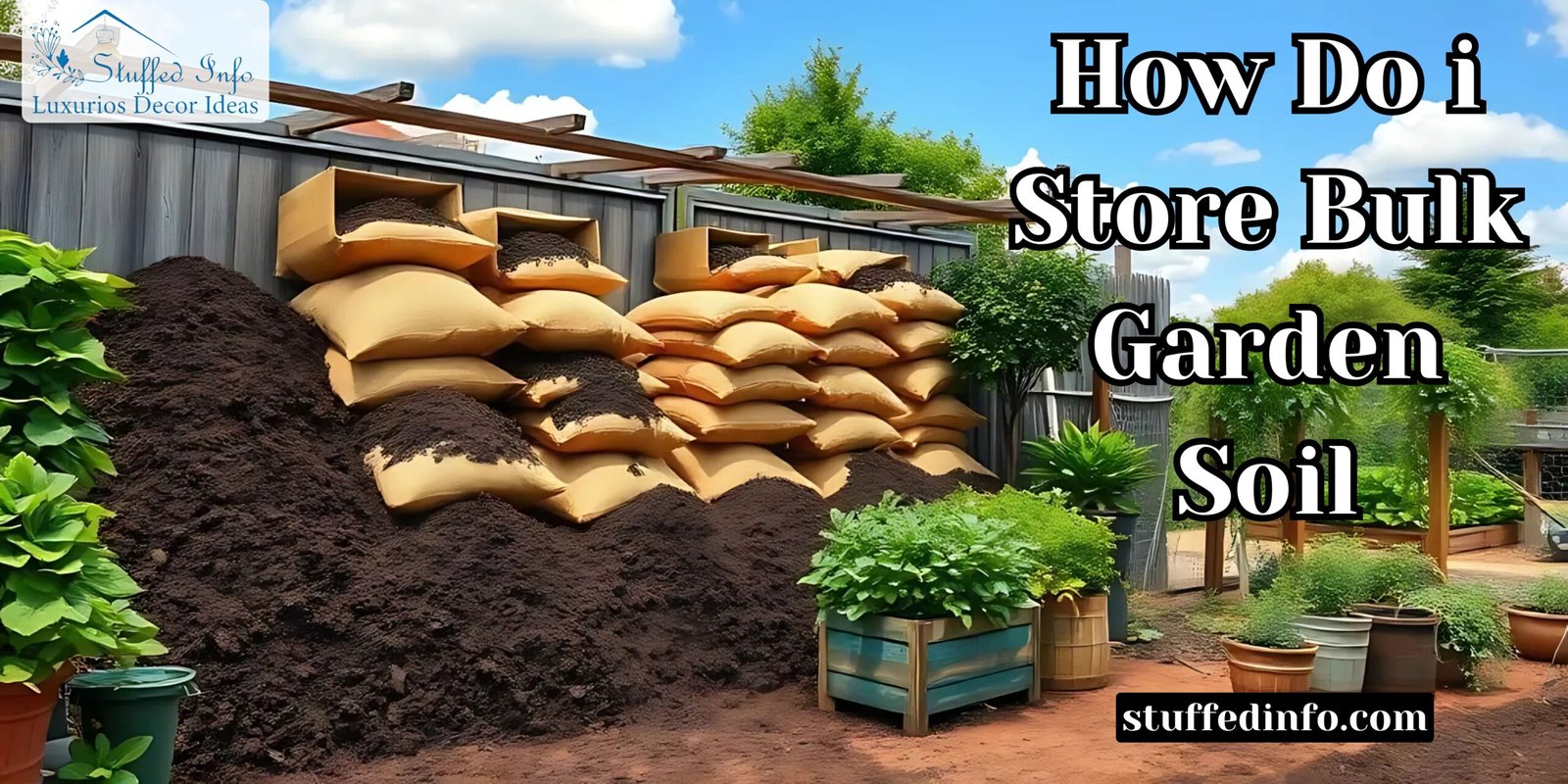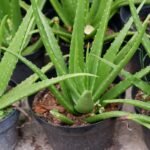Everyone loves a lush garden, and healthy soil is essential for cultivating its plants and trees. Sometimes, we have extra garden soil that needs safe, long-term storage. However, this task may seem challenging, but with the right techniques and conditions, you can succeed effortlessly. Therefore, to completely guide you in this matter, we prepared this blog post to answer “how do I store bulk garden soil at my place?”. So, without any further ado, read this complete blog till the end.
Table of Contents
ToggleWhat Is Garden Soil?
So before learning the answer to how do I store bulk garden soil, let’s first know more about garden soil, its use and its existence. Garden soil is a mixture of air, water, organic matter, and minerals, not just dirt. Such soil is loaded with nutrients that allow the plants to grow and give them all the required minerals to become productive. Common types of garden soil include sandy, clayey, loamy, saline, chalky, and peaty soils.
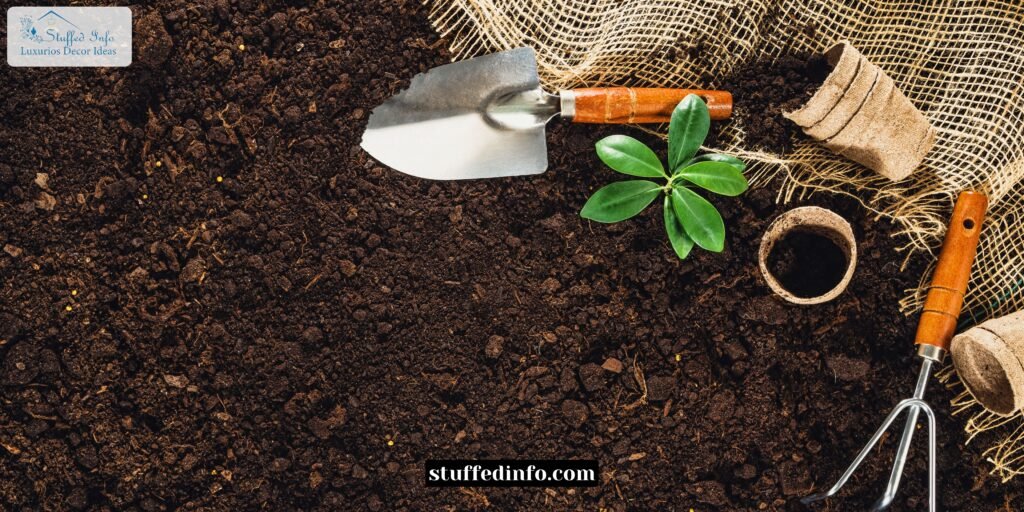
Moreover, soil also has the ability to hold moisture, temperature, organisms, and air exposure in it which benefits the garden and maintains its quality to the premium level. Besides this, buying and storing the garden soil is a long term effort as it is more like an investment for preventing your plants from issues such as degradation, erosion, infertility, and so on.
How Do I Store Bulk Garden Soil?
There are various aspects you need to learn and follow to store bulk garden soil. It includes everything from the appropriate container to location and periodic monitoring. Hence, to learn about them in detail, read the below-shared sections:
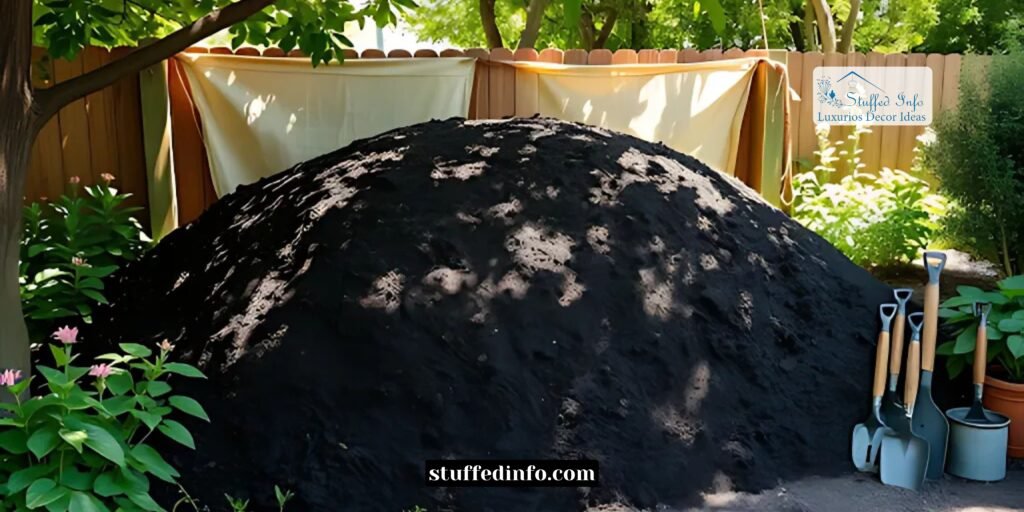
Right Storage Location
The first thing to consider when storing bulk garden soil is the best location for it. Thus, the required storage spot for garden soil must fulfill the below-shared conditions:
- Completely cool and dry: The place should be cool and dry so that the garden soil remains dry, bacteria-free, and structurally intact.
- Far from direct sunlight: Continuous direct sunlight on the garden soil can make it dehydrated which eventually results in loss of microorganism and moisture.
- Easy drainage: In case your storage location is outside then make sure it is elevated or near the drainage so that there is no scope of water logging.
Note: Some suitable locations are garages, shaded outdoors, store rooms, sheds, and so on.
Proper Containers
Keeping open piles of garden soil in your space compromises its quality by allowing contamination. Hence, some things to keep in mind for the right choice of container are as follows:
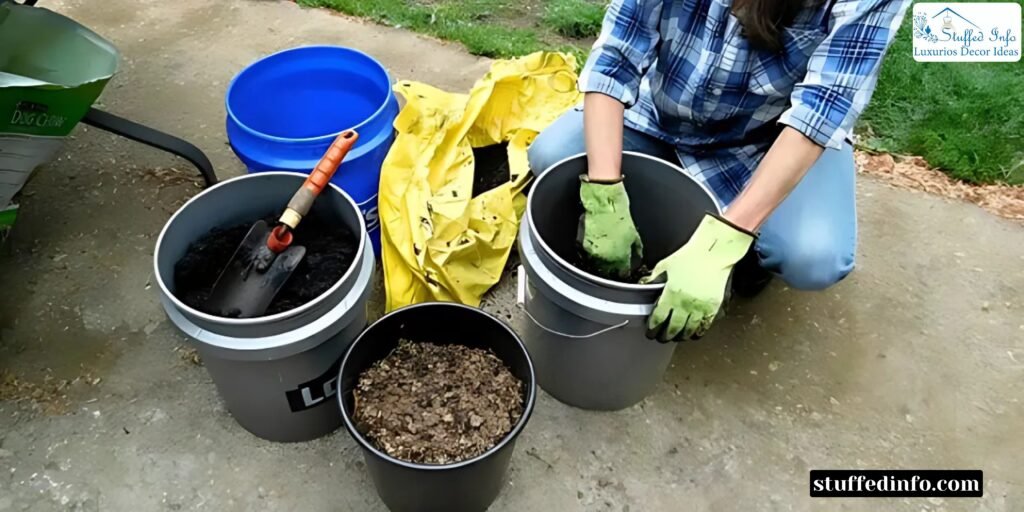
- High quality box: You should use great plastic bins and large buckets with tight-fitting lids that are also strong and durable for rough and tough use.
- Place for drainage: There must be tiny holes at the bottom of that container so that moisture does not trap in it or the excess water drains out of that.
- Precise labeling: You must also label the type of soil you are putting in a single container. This will save you keeping track of the different garden soils and their expiry date as well.
Sealed Covering
One of the other answers to “How do I store bulk garden soil at my place?” is by covering them with a high-quality top layer. The points to follow in this aspect are as follows:
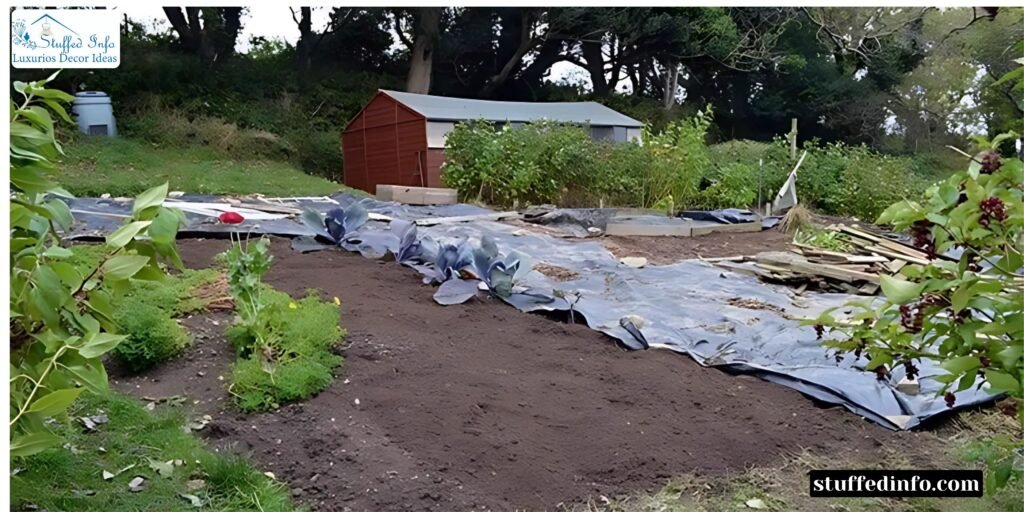
- Use heavy-dust plastic: You should cover the pile or container of soil with a water-resistant and durable tarp. This will protect the soil from damage caused by wind, rain, or sunlight. Also, do not forget to secure the layer with heavy objects such as stones.
- Proper air circulation: Lack of moisture or air circulation in the garden soil can make it anaerobic, which leads to the growth of molds. Thus, you need to make small holes in the layer for proper airflow.
- Regular checkup: Keeping a track of the soil’s condition is a must. Therefore, you need to lift up the covering layer periodically and ensure it is dry. If it looks damp then open the layer to evaporate it.
3 Ways To Store Bulk Garden Soil To Use Over Time
Storing garden soil is easy, but using it before it expires requires attention and care. Therefore, some of the tips that can help you use the stored soil effectively are as follows:
- Stir the soil periodically: Turning or mixing the stored soil on a periodical basis is very important. Hence, it helps in distributing the moisture throughout the pile of soil. Moreover, it also allows the garden soil to aerate so that the microorganisms living in it stay alive.
- Prioritize the oldest batch of soil: Make sure to always use the old stored soil first so that they do not sit for longer and lose their benefits. In addition to this, you are suggested to label the soil containers during storage time to identify that.
- Blend in fresh compost: It is very obvious that the nutrients of the soil begin degrading with time. Therefore, to keep it fresh, useful, and healthy you should periodically add fresh compost in it. Doing this will rejuvenate its fertility and lost nutrients effortlessly.
Valuable Tips For Storing Bulk Garden Soil
Besides the best soil storage methods, a few tips can help maintain its quality for longer use. Hence, read the below-shared points for the same:
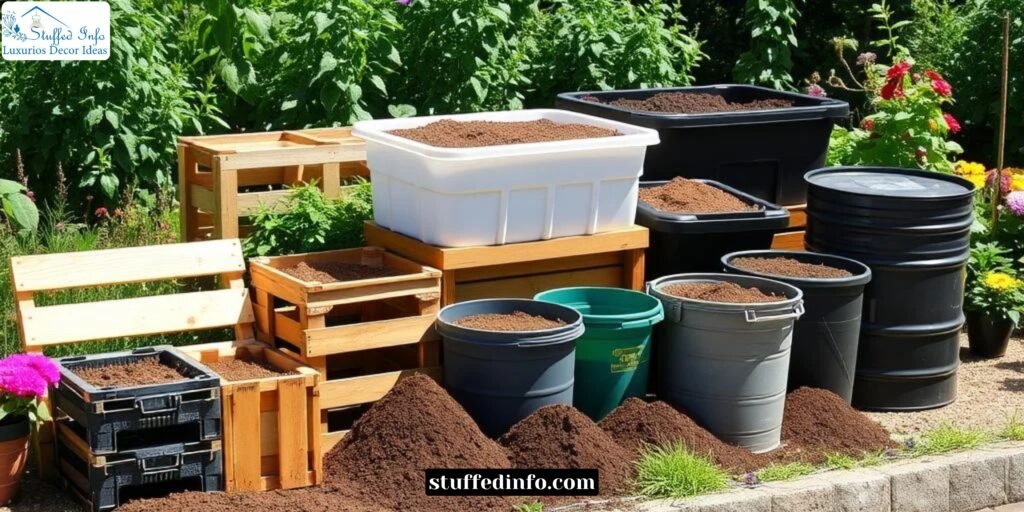
- Keep the garden soil in raised bins to avoid contact with water and pests.
- During extreme environmental conditions, store the soil in indoor spaces.
- Make sure to check the pH level of the stored garden soil before using it in plants.
- If the soil looks too dry, sprinkle some water on it to give it the required texture and moisture.
- If the soil smells rotten, leave it in direct sunlight for a day, turning it occasionally.
- Regularly inspect the stored garden soil to check the existence or growth of pests.
Conclusion
In this blog post, we briefly answered, “How do I store bulk garden soil”. Therefore, we explained the meaning and importance of storing garden soil. We shared how to store soil to keep it fresh and healthy longer. In addition to this, we also mentioned some tips and tricks to keep the soil free from any type of nutrient loss or infertility. I hope this page answered your questions and gave you great ideas for preserving and reusing garden soil.
FAQs
What are the components of garden soil?
Minerals, water, microorganisms, nutrients, air, and organic matter are the components of garden soil.
What are the different types of garden soil?
Common types of garden soil include sandy, clayey, loamy, saline, chalky, and peaty soils.
How to store soil?
Many tips can help you store soil safely for a longer time. This involves using high-quality containers, covering it with a tarp, and storing it in a cool, dry place. Moreover, checking and mixing the soil periodically is also very important.


